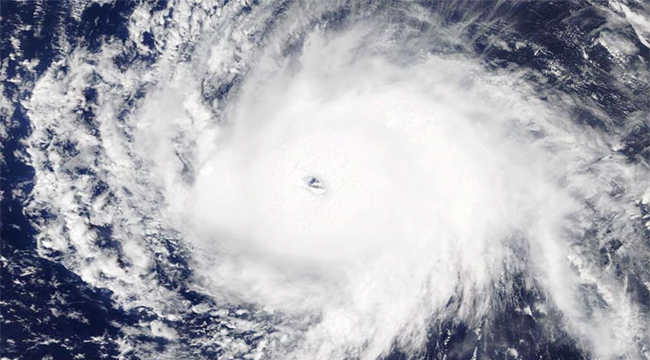
Hurricane season is in full swing after forecasters predicted that 2018’s stint could be as devastating as 2017 when all is said and done. Currently, three hurricanes with divergent paths are churning through the Atlantic, and most urgently, forecasters are sounding the alarm about Florence. The storm has rapidly intensified and reached “major hurricane” classification on Monday morning (with maximum sustained winds of 130 mph, making it a Category 4), although eyes are also on Isaac and Helene for the future.
The National Hurricane Center warns that Florence could soon cause a coastal surge that includes flooding before the storm is projected for U.S. landfall (probably) on Thursday. Further, residents and tourists should expect heavy prolonged rain upon the storm’s arrival. Although Florence’s path has wavered over the past week, forecasters now project that the storm could still pack a Category 4 or even 5 punch upon landfall, which will occur along the Southeast or Mid-Atlantic coast (most likely upon the Carolinas). However, the entire east coast is warned to be on high alert in case the storm’s path further shifts, and of course, the impacts will expand far beyond the storm’s initial landfall.
CNN’s Jim Sciutto has tweeted this photo, taken by astronaut Ricky Arnold from the International Space Station, which shows Florence’s terrifying size.
#HurricaneFlorence from space. Just immense. Courtesy @astro_ricky pic.twitter.com/hjZdxMQL5P
— Jim Sciutto (@jimsciutto) September 10, 2018
Meteorologist Eric Holthaus did likewise. Yikes.
OK you guys, my intention is not to scare anyone with this message.
But Hurricane #Florence—the storm bound for North Carolina—is going to be about the size of North Carolina when it arrives.
This is what it will look like, according to the latest high-res model prediction: pic.twitter.com/B8vCm3FDi6
— Eric Holthaus (@EricHolthaus) September 10, 2018
Early on Monday, Sam Lillo, a University of Oklahoma meteorology student, posted this ominous video of Florence at sunrise.
There are few sights in this world as simultaneously beautiful and terrifying as the sun rising on a rapidly intensifying hurricane.#Florence pic.twitter.com/xSSw6Elc2y
— Sam Lillo (@splillo) September 10, 2018
CNN’s forecasters warn that Florence could be the strongest and most devastating hurricane to hit North and South Carolina in about three decades. Meteorologist Chad Meyers told viewers that “this storm gets stronger and stronger” as it approaches the Carolinas, and this coming weekend could be a disastrous one for millions of residents. Here’s one of NASA’s latest clips of Florence, via CNN.
This NASA satellite image shows the eye of Hurricane Florence, which is expected to approach the US East Coast on Thursday as a Category 3 storm or higher, according to the National Hurricane Center https://t.co/WicyLVEkFe pic.twitter.com/43FdnbfgWx
— CNN (@CNN) September 10, 2018
(Via Palm Beach Post, National Hurricane Center, Washington Post, CNN & The Weather Channel)
